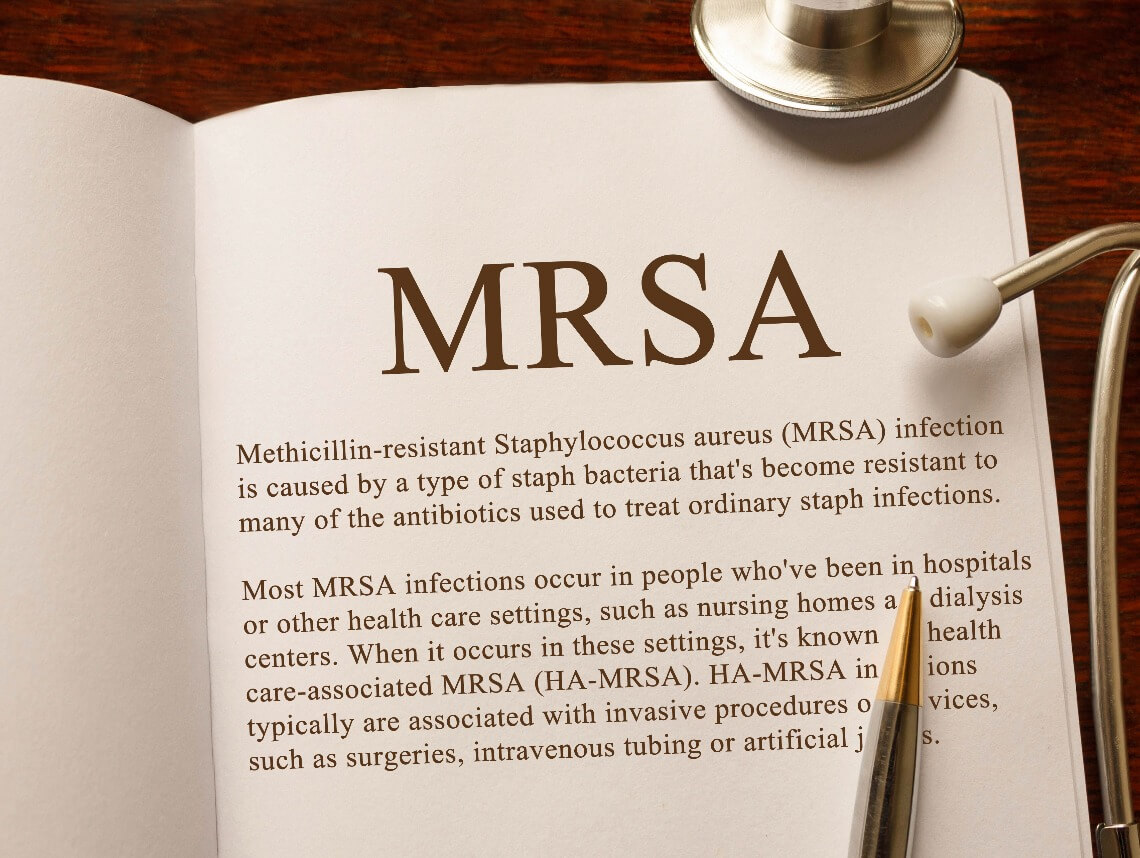MRSA is a frightening word that can have long-lasting health implications for your elderly loved one. It helps to understand what MRSA is and what the risks are for contracting the infection. Recognized early, it is possible for patients suffering from MRSA to see successful treatment. Having experienced elder care providers helps, too, since they also know what to look for.
What Is MRSA?
MRSA stands for methicillin-resistant Staphylococcus aureus, which means the infections are no longer able to be treated with standard -cillin antibiotics. MRSA is actually a group of drug-resistant infections. These infections have become more common in the last few decades because the bacteria causing the infections have adapted and changed as a result of exposure to antibiotics. MRSA is a huge problem for elderly loved ones because they have a higher risk of succumbing to these infections if they aren’t caught and treated quickly enough. These infections are also more likely to occur in hospitals and nursing homes.
MRSA Symptoms
MRSA most often starts out as a small flesh wound that becomes infected and really takes off. The wound can be as minor as a paper cut or a pimple, but left untreated, it can become far worse. A normal infection may become red, slightly swollen, and a little warm.
Symptoms of MRSA can include:
- Increase of pus or other drainage
- Significant warmth around the wound
- Fever or chills
- Abscesses in the area
- Shortness of breath
- Chest pain
- Muscle aches
- Weakness and fatigue
Attention to wounds and to their changing characteristics can help elderly loved ones and family caregivers to notice the small changes that can mean the wound is worsening and may become an MRSA infection. Seeking medical attention immediately is advised, even if you’re not sure you’re dealing with something serious as MRSA.
MRSA Diagnosis
Your elderly loved one’s doctor diagnoses MRSA by taking a culture from the wound itself as well as other samples as necessary. Those might include blood, urine, or mucus samples.
MRSA Treatment
Depending on the extent of the infection, lancing and draining an abscess may be all that is needed.
Other treatments include strong antibiotics that can be taken orally at home.
Severe MRSA infections require treatment in a hospital so the patient can receive intravenous antibiotics, oxygen as needed, and other treatments depending on the extent of the infection.
Contact Care Options for Kids for Home Health Care Services
MRSA is not a threat to be taken lightly, but neither is it a guarantee that more terrible things are around the corner. Stay alert for signs of infection, and ensure you and elder care providers are aware of the possibility of infection.
If you or an aging loved one are considering hiring home health care services, contact the caring staff at Care Options for Kids today. (888) 592-5855.
Sources
https://www.webmd.com/skin-problems-and-treatments/understanding-mrsa#1
https://www.mayoclinic.org/diseases-conditions/mrsa/symptoms-causes/syc-20375336
https://www.mayoclinic.org/diseases-conditions/mrsa/diagnosis-treatment/drc-20375340






